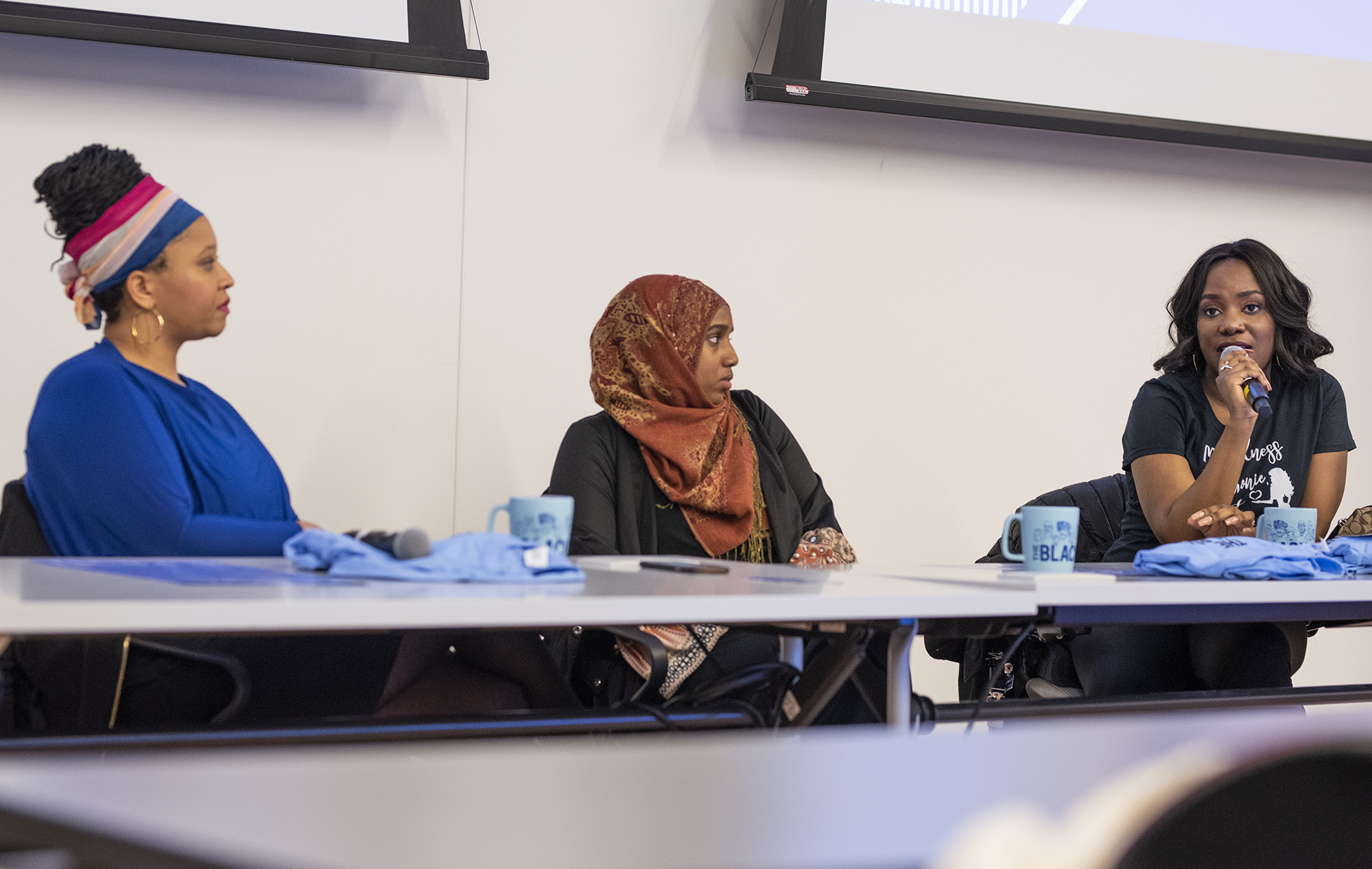By Elisa Posner
For The Diamondback
Ensuring space for black women in social movements was the theme of the second part of an advocacy and activism discussion held at the University of Maryland on Tuesday.
The event series, “Black Women’s Advocacy, Activism, and Mobilization Across the Diaspora” was in honor of Black History Month and was run by MICA and this university’s diversity and inclusion office.
Ola Ojewumi, a disability rights activist and an alumna of this university, said her activism grew out of her childhood. She was shy to the point where nurses in her hospital thought she was mute, and as she grew older, she said she discovered only she could be her best advocate.
“I realized that my parents couldn’t fight this for me because they didn’t understand the system,” Ojewumi said. “I’m not gonna be silent. Life is too short for that shit.”
Ojewumi, who discussed her struggles with participating in social movements as a black woman with disabilities, said she is uncomfortable in spaces that aren’t accessible for people like her. At a Women’s March, for example, she said she physically couldn’t see what was happening because of her wheelchair.
[Read more: Advocacy among black women at center of UMD Black History Month Talk]
Jaimee Swift, the creator of Black Women Radicals, discussed her efforts to expand the online space for black women activists because of the importance of intersectionality in social movements.
Her organization empowers black women activists through campaigns, blog posts and a database with black women activists dating back to the 1860s.
Swift said academic systems too often focus on heterosexual male leaders of the black social justice movement, and neglect the women and LGBTQ activists.
“At Howard University, we only talk about black male heterosexual leaders, not queer or gender non-conforming,” she said. “My professors try to ignore me, but I won’t be ignored … We have white history if we don’t also talk about the trans, queer, and gender non-conforming side.”
Although confrontation is a key part of activism, not all activism has to be that way, sophomore public health science major Mariama Lukulay said. She thought online activism, like Swift’s, and fundraising are also critical parts of social movements.
“Activism can be seen as having to be seen and heard and outward in a crowd,” Lukulay said. “Sometimes the best activism is silent and not seen in front of everyone.”
[Read more: Tension persists between Nyumburu Cultural Center and UMD’s diversity VP]
Marc Weinschenker, a teacher from Prince George’s County, said often times it’s the people behind the scenes who make a difference.
“Everyone has a different role in activism,” he said. “Not everyone can be the loud voice, holding the signs.”
Panelist Maryam Abdul-Kareem said conversations like this can also be viewed as a form of activism.
Abdul-Kareem stressed it’s critical in these conversations for participants to understand where everyone is coming from. People can’t assume others share their worldview just because those individuals have chosen to participate, she added.
“I’ve spent too much time in spaces with wealthy white folks who have too much power,” Abdul-Kareem said. “Even in moments where I’m nervous or fearful, it’s about realizing that this needs to be done, because the consequences of it not being done are just too great.”
This story has been updated.



